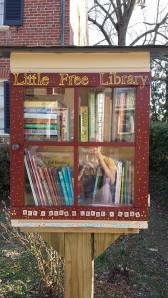I first heard about Wild a few months after its release in 2012 when Oprah selected it as the first book of her book club 2.0. The story immediately captured my interest but for whatever reason, I never picked it up. When I saw that Hollywood made the book into a movie, I knew that I needed to finally read it. Not because I was excited to see the movie, but because I needed to make sure I had read the book before I could possibly have the opportunity to see the movie. Because let’s face it, Hollywood does not have a great track record of creating amazing movies based off of books.
Wild is the true story of Cheryl Strayed’s life-changing journey along the Pacific Crest Trail. After losing her mother to cancer at the age of 22, Cheryl’s life spirals out of control. She divorces her husband and attempts to deal with her emotions through sex and heroin. Four years after her mother’s death, she still had not come to grips with her reality. So, she packs a bag (tenderly named “Monster”) and hits the Pacific Crest Trail for a bit of self discovery. Having never seriously hiked a day in her life, it was both a spontaneous yet well-planned decision.
Over the course of her 1,100 mile hike, Cheryl faces rattlesnakes, bears, searing temperatures in the desert, record snowfalls in the mountains and failed hiking gear. She meets an incredibly diverse and entertaining group of characters along her hike with whom she develops unique bonds through their shared experience. Her story unravels as she makes her way along the trail and her mother’s ghost is an inevitable companion each day and each night. The memoir takes you from her very first monumental steps on the trail when her legs were wobbly and she could barely carry her pack to the time when her legs were muscular, hairy and steady.
Perhaps my favorite part of Cheryl’s journey was the relationship she had with her books while on the trail. Every night (when she wasn’t absolutely wrecked with exhaustion) she would sit with her bowl of dehydrated noodles and read with her headlamp under the stars. As she read, she would tear out the completed pages and use them as kindling for her fires. It seemed, that the books and both practical and symbolic burning of the pages helped pull Cheryl back to sanity. This in particular really stuck with me as many books over the years have helped bring me back to a place of balance and peace in my life.
The journey that Cheryl takes you on through her prose is intense, captivating and emotional. You can feel her world slowly starting to come back together through her words. She not only begins to heal from her mother’s death, but begins to realize who she is and love that person.
I can’t say that I really had any expectations for this book before I began reading it. However, I can say that I did not expect it to have the profound effect on me that it did. I related to so many pieces of her life and her journey, not necessarily in exact physical ways but definitely emotionally. It is a refreshing piece of reality that will help you realize that the obstacles you have overcome in your own life are not so different to other people’s. It was a real, raw story of life, love and loss that will leave you a changed person after turning that last page.
Rating: Amazing – 10 out of 10

